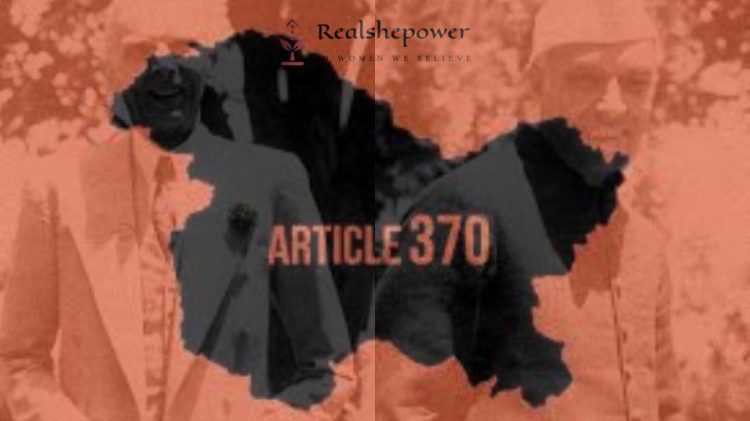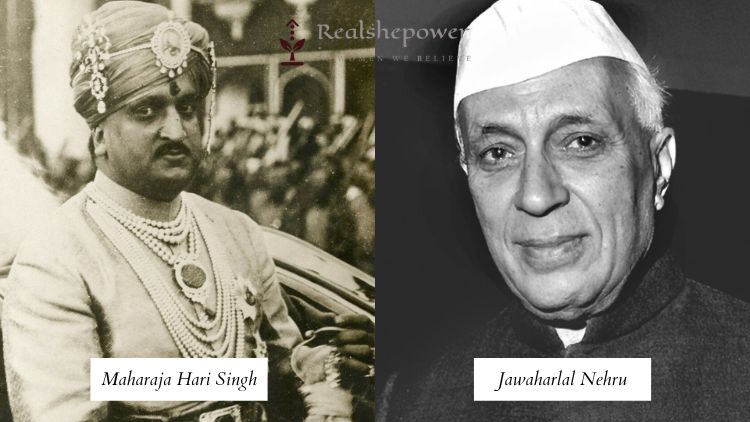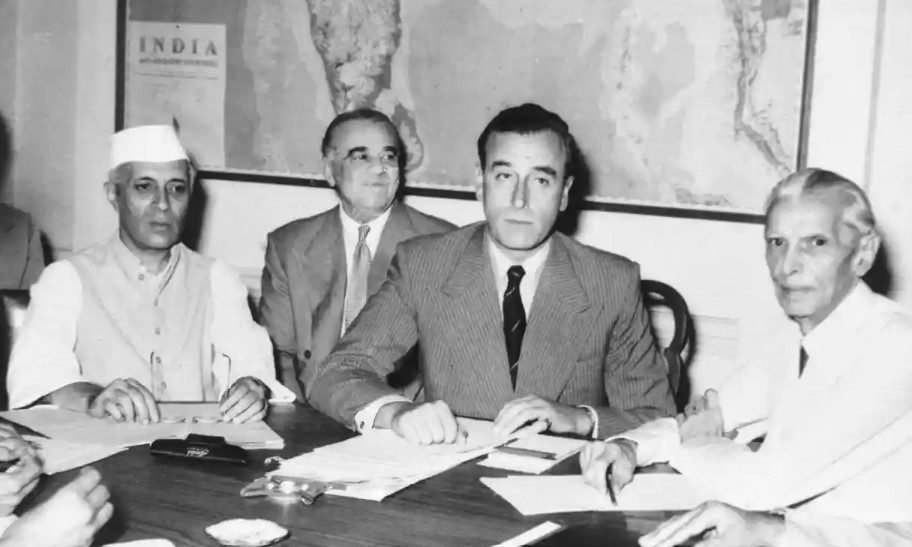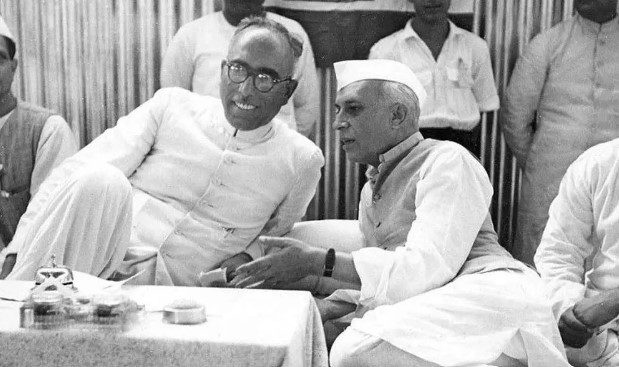Kashmir Issue Explained In Simple Words


With the repeal of Article 370, Jammu and Kashmir’s special status was withdrawn. The state was divided into two union territories, bringing Kashmir into line with the rest of India. But do you know how Kashmir came to have this unique status? Was the repeal of Article 370 unconstitutional? Let’s take a look back in time to find out.
Partition of India in 1947
When India was partitioned in 1947, there were 562 princely states, each ruled by a king or a nawab. When the British withdrew, they controlled these kingdoms but did not meddle in their internal affairs. A compelling question arose: what would be the status of the princely states? According to the Indian independence act of 1947, these republics could either join India through the instrument of accession, merge with Pakistan, or remain independent. The majority elected to join India, while others preferred to join Pakistan. However, Maharaja Hari Singh, the ruler of Jammu and Kashmir, because of his conflicts with India and its prime minister, Jawaharlal Nehru, wanted to retain his realm of independence.
What differences did Nehru and Maharaja Hari Singh have?
Sheikh Abdullah, the leader of Kashmir’s first political organisation, the Kashmir Muslim Conference, which is now known as the National Conference, was a close and dear friend of Nehru in Kashmir. In 1946, Shaikh Abdullah led an agitation against the king. He claimed that the Maharaja desired a communist form of governance in Kashmir. He started the Quit Kashmir movement, a carbon copy of the Quit India movement. The movement was illogical and a failure because it was directed against an Indian rather than a foreign occupying force. However, Sheikh Abdullah persisted in demanding that the king departs from the valley. But, what was Nehru’s perspective on this?
Nehru, a Kashmiri pandit, allegedly ignored Sheikh Abdullah’s initiatives. Nehru referred to Abdullah as his blood brother. He described him as a guy above suspicion who could do no wrong and was only acting in Kashmir’s best interest. Nehru’s bias became evidently clear in an August 1945 declaration.

According to a statement made by Nehru at the annual session of the national conference, “If non-muslims want to live in Kashmir, they should either join the national conference or bid farewell to the country.” If pundits do not join it, no safeguards will protect them.
Distrust arose as a result of such occurrences and utterances. In May 1946, Maharaja Hari Singh ordered the arrest of Sheikh Abdullah, which Nehru considered an insult. The chasm between him and the maharaja grew wider, threatening Kashmir’s destiny.
Maharaja Hari Singh’s Dilemma
When the British left India, Maharaja Hari Singh was faced with a decision that was both personal and political. Should he remain independent or join Pakistan or India? If he acceded to India, Pakistan would retaliate; if he consented to Pakistan, the Hindus of Kashmir would detest him, as would Sheikh Abdullah, who had his own objectives. Maharaja Hari Singh was in a pickle when he received a letter. Sheikh Abdullah wrote a letter in which he expressed his desire to join the Indian Union. Abdullah’s change of heart was mostly motivated by personal concerns.
If the maharaja chose Pakistan, then Sheikh Abdullah’s political career would have been jeopardised. Pakistan’s leader, Muhammad Ali Jinnah, regarded Abdullah as a renegade and a Congress party agent who was attempting to trade Kashmir to India for personal gain and power. This animosity was apparent in Jinnah’s remark that Abdullah is a big man who sings the Quran and uses the people who regard Pakistan as a threat to his goals.
On October 26, 1947, Abdullah announced his willingness to collaborate with Maharajah Singh, even if only temporarily, and Kashmir became part of India.
British involvement in The Attack on Kashmir
The Capital’s destiny was hanging by a thread. Four days after Pakistani tribesmen led by the Pakistan army invaded Kashmir, they quickly arrived close to Srinagar. The Indian army intervened, liberating seized lands and making Kashmir an integral part of India. But Pakistan’s provocations did not deter its raiders, who remained stationed at the border waiting for an opportunity to strike. According to some reports, their efforts were directed by General Messervy, a British general who served as Pakistan’s first commander-in-chief.

Photograph: Gamma Keystone/Getty
These actions directly violated Britain’s decision not to intervene between the two sides, but they did so nonetheless, not only militarily but also diplomatically. On the Indian side, another Englishman, Lord Mountbatten, the last viceroy of India and now the governor-general, travelled to Lahore in November 1947 to serve his country’s interests. According to Mount Baton, he was unbriefed by the Indian government when he met with Muhammad Ali Jinnah.
Lord Mountbatten proposed to Jinnah that a plebiscite be held in Kashmir. A proposal he claimed to have drafted on his flight from New Delhi to Lahore in which Mountbatten said, “I had not yet shown to my government but to which I thought they might agree.” In other words, Mountbatten assumed that India would agree to a plebiscite. In reality, even Pakistan was not in favour of it.
Why would Mountbatten make such an offer when Jinnah objected strongly to a plebiscite, calling it redundant and undesirable? How did India reply to this unapproved offer in order to appease Jinnah?
Nehru’s Response To The Kashmir Issue
In a broadcast, India’s prime minister agreed to a United Nations-controlled plebiscite in Kashmir. In the hope that this would end the conflict; Pakistan, meanwhile, jumped at the proposal, hoping that the Muslim-dominated region would vote in its favour. However, this decision sucked both countries, particularly India, into the vortex of international politics. It turned Kashmir into an unsolvable problem and a pawn in the hands of world powers.
Despite the fact that Kashmir’s accession to India was lawful and Pakistan was no match for India’s military capability in the ongoing battle, the merits of India’s cause were lost in power politics. Simply put, by going to the United Nations, India shot itself in the foot. Jawaharlal Nehru is supposed to have recognised that this was a mistake, saying, “the Kashmir issue has caused us a tremendous lot of trouble; the attitude of large nations has been remarkable; some of them have exhibited active partisanship for Pakistan; we have not been given a square deal,” and he was correct.

Sheikh Abdullah’s Ambition Of Becoming The Sultan Of Kashmir
India was not given a fair deal, and as international unrest grew, petty politics erupted at home. Sheikh Abdullah was released from prison and appointed Prime Minister of Kashmir as well as the head of an emergency administration. As soon as he got power, he reversed course and betrayed his commitments to India. He began advocating for the independence of Kashmir.
By 1953, Abdullah had grown so abrasive and domineering that he had turned against Prime Minister Nehru, his so-called blood brother. Sheikh Abdullah defied Nehru’s authority and is accused of plotting to install himself as sultan of an independent Kashmir. His appeals for independence resonated with the people of the valley, who had lost sight of the fact that Kashmir had legally acceded to India.
Expecting another conflict New Delhi began to cater to Abdullah’s wishes, while Abdullah attempted to blackmail them in exchange. He made compromises with the Indian establishment that only insured Kashmir’s imperfect merger with India. Article 370 and section 35a of the Indian constitution is a typical example of such a deal. They were included in the Indian constitution to give Kashmir the authority to have its own constitution, flag, and internal affairs autonomy.
These are powers that other states do not have. Kashmir was the only exception, but it is apparent that Sheikh Abdullah paid no attention to India’s gestures and continued to press for Kashmir’s independence. In an interview with the Scotsman, Abdullah stated that neither India nor Pakistan can bring peace to Kashmir.
Last Word
This was the founding history of the Kashmir dispute, a conflict marked by treacherous schemes aimed at wars, separatism, and terrorism. Let’s also be very clear that this is an India-created conflict. One that has resulted from a slew of errors, the most egregious of which is allowing foreign countries to intervene in its affairs and allowing friendships to influence political decisions.
